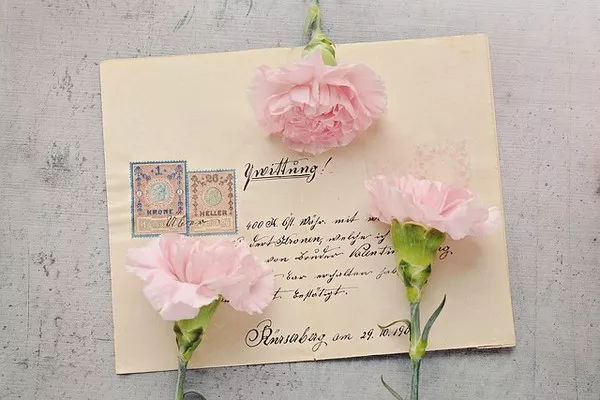Flowers have long been considered a universal symbol of affection, appreciation, and love. Traditionally, society has associated the act of giving flowers with gestures of courtship and love predominantly aimed at women. However, in recent times, the idea of gender roles and expectations has evolved, challenging these stereotypes. This shift has raised a pertinent question: Do men like to receive flowers? In this article, we will delve into this intriguing question, examining the changing attitudes towards gender roles, cultural perspectives, and the psychological factors that influence men’s appreciation of floral gifts.
Changing Gender Roles and Expectations
As societal norms have evolved, so too have the perceptions of what is considered acceptable for men. The stereotypical “macho” image, which once frowned upon men expressing their emotions or embracing their sensitive side, has given way to a more inclusive and diverse view of masculinity. This cultural shift has made it increasingly acceptable for men to openly appreciate and enjoy traditionally feminine gifts, such as flowers.
Many men today appreciate flowers as a thoughtful and heartfelt gesture, just like women do. The modern man is often more in touch with his emotions and is not afraid to display affection and gratitude openly. Gifting flowers to a man is seen as an expression of love and appreciation, transcending gender norms.
Cultural Perspectives on Men Receiving Flowers
It’s essential to consider cultural perspectives when discussing whether men like to receive flowers. Cultural attitudes towards gender roles, expressions of love, and gift-giving can significantly impact how men perceive floral gifts.
In some cultures, men receiving flowers is a common and even expected practice. For instance, in Japan, giving and receiving flowers are not limited by gender. Men receive flowers on various occasions, such as promotions, graduations, and other significant life events. Similarly, in parts of Europe, it’s not uncommon to see men carrying or receiving flowers without any stigma attached.
Conversely, in some cultures, there may still be resistance to the idea of men receiving flowers, rooted in more traditional views of gender roles. It’s crucial to recognize these differences and adapt the gesture accordingly while respecting the individual’s cultural background and preferences.
Psychological Factors: The Science Behind Flower Appreciation
To understand whether men like to receive flowers, it’s essential to explore the psychological factors that influence their appreciation of floral gifts. Several psychological theories and studies shed light on the matter.
Emotional Response: Numerous studies have shown that flowers elicit positive emotions and feelings of happiness and gratitude in both men and women. The act of receiving flowers can trigger a genuine emotional response, which men are equally capable of experiencing and appreciating.
Symbolism: Flowers often carry symbolic meanings and connotations. Men may appreciate flowers not only for their visual beauty but also for the sentiment and symbolism behind them. The choice of flowers and their meanings can make the gesture even more meaningful to men.
Thoughtfulness and Gesture: Men, like women, appreciate thoughtful gestures that show care and affection. The act of giving flowers demonstrates thoughtfulness, making the recipient feel valued and loved, irrespective of their gender.
Connection to Nature: Humans have an innate connection to nature, and flowers are a tangible reminder of this connection. Men who appreciate nature or have an affinity for gardening, for example, may have a heightened appreciation for flowers.
Social Validation: In today’s society, the act of gifting flowers to men is gradually gaining social validation. When men see their peers receiving flowers and expressing joy and gratitude, they may become more open to the idea themselves.
Practical Tips for Gifting Flowers to Men
If you’re considering giving flowers to a man, there are some practical tips to keep in mind to ensure the gesture is well-received:
Personalize the Gift: Consider the recipient’s preferences when choosing flowers. Are there specific colors or types of flowers they like? Personalization adds a thoughtful touch to the gift.
Include a Thoughtful Message: A heartfelt message accompanying the flowers can enhance the sentiment behind the gift. Express your feelings and why you chose to give flowers.
Consider the Occasion: Flowers can be appropriate for various occasions, from birthdays to achievements or simply as an expression of love and appreciation.
Respect Cultural Differences: Be mindful of cultural norms and the recipient’s background when giving flowers. What may be well-received in one culture might not be in another.
Focus on the Gesture: Remember that the act of giving flowers is about expressing love and appreciation. It’s not limited by gender, and the sentiment behind the gift matters most.
Conclusion
In conclusion, the question of whether men like to receive flowers is no longer a straightforward yes or no. As societal norms evolve and gender roles become more fluid, men are increasingly open to and appreciative of receiving flowers as tokens of love, appreciation, and thoughtfulness. Cultural perspectives and psychological factors play significant roles in determining how men perceive floral gifts, with emotional response, symbolism, and the thoughtfulness of the gesture being key factors.
Ultimately, the act of giving flowers is a universal expression of love and affection that transcends gender boundaries. Whether you’re considering giving flowers to a man or a woman, the sentiment behind the gesture is what truly matters, making it a beautiful way to connect with and show appreciation for the people we care about.


